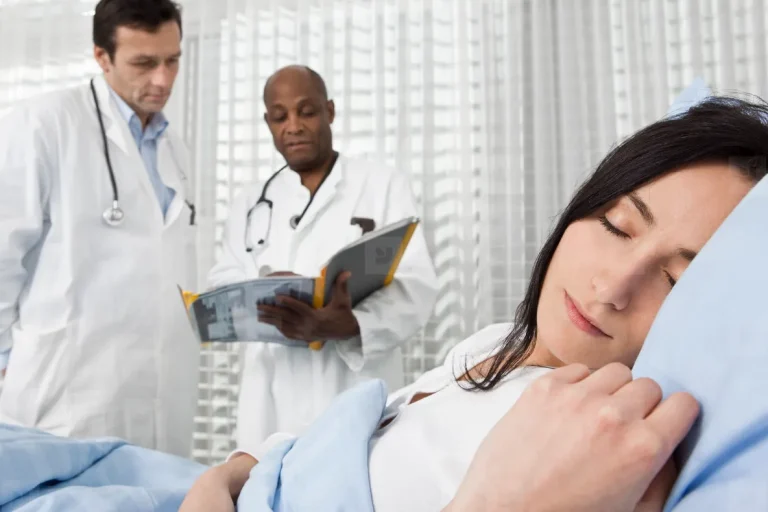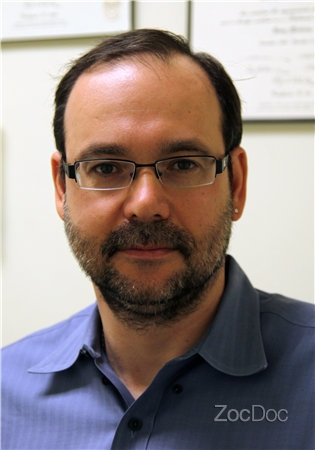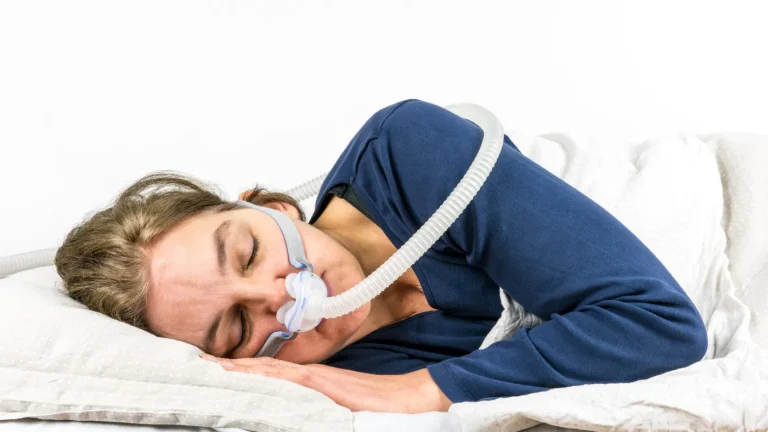Sleep Apnea Study Near Me
You can have your sleep apnea diagnosed and treated effectively by consulting certified sleep specialists at nearby sleep study facilities. These experts ensure thorough evaluations using advanced polysomnography, which tracks brain activity, breathing patterns, oxygen levels, and more. Depending on your condition, they might perform a CPAP/BiPAP titration test to identify ideal air pressures for preventing airway obstructions. Treatment options range from CPAP therapy and oral appliances to potential surgical interventions. Facilities are equipped with state-of-the-art technology and dedicated five-bed units for precise diagnoses. Discover more about how these consults can enhance your sleep health and overall quality of life.
Noteworthy Details
- Certified sleep specialists provide personalized diagnosis and treatment plans.
- State-of-the-art in-house sleep lab with advanced recording equipment.
- Polysomnography sleep studies to identify sleep apnea and other disorders.
- CPAP/BiPAP titration tests for optimal airway pressure settings.
- Comprehensive facilities offering a five-bed sleep unit for adult sleep studies.
Expert Sleep Specialists
At NYEE, a team of certified sleep experts, who are also skilled in pulmonary medicine, guarantees you receive thorough care tailored to accurately diagnose and treat your sleep issues. When you first visit, you'll consult with these highly experienced sleep specialists who'll evaluate your symptoms and medical history meticulously. They utilize their deep expertise in both sleep and pulmonary medicine to identify underlying issues that might be impacting your sleep quality.
A cornerstone of their diagnostic approach is the sleep study, or polysomnography (NPSG), conducted in NYEE's accredited lab. This detailed test records various physiological parameters while you sleep, such as brain waves, blood oxygen levels, heart rate, and breathing patterns.
The detailed data collected during these sleep studies allows the specialists to diagnose a wide range of sleep problems with accuracy.
Moreover, if you have conditions like obstructive sleep apnea, the specialists may recommend a CPAP/BiPAP Titration Study. This test helps determine the best air pressure settings needed to keep your airway open during sleep, ensuring effective treatment.
The expertise of NYEE's sleep specialists in interpreting these studies ensures that you receive the most precise diagnosis and personalized treatment plan.
Diagnostic Services
Our diagnostic services feature thorough polysomnography (PSG) sleep studies and CPAP/BiPAP titration tests conducted in an accredited lab. These tests gather critical data on your sleep patterns, respiratory events, and oxygen levels to accurately diagnose sleep disorders.
Results are meticulously analyzed and sent to your referring physician within two weeks, facilitating prompt and effective treatment planning.
Polysomnography Sleep Study
During a polysomnography sleep study, clinicians carefully monitor your brain activity, breathing patterns, oxygen saturation, heart rhythms, and muscle movements to diagnose a range of sleep disorders. Conducted overnight in a controlled environment like a sleep lab at Mount Sinai, this thorough diagnostic tool is invaluable for identifying conditions such as sleep apnea, narcolepsy, and restless legs syndrome.
Polysomnography involves several key measurements:
- Electroencephalography (EEG): Captures brain wave activity to assess different sleep stages and detect abnormalities.
- Electrocardiography (ECG): Monitors heart rhythms to identify any irregularities that might be related to sleep disturbances.
- Electromyography (EMG): Records muscle activity, particularly in the legs, to identify movements associated with conditions like restless legs syndrome.
- Pulse Oximetry: Measures blood oxygen levels, essential for detecting drops in oxygen that indicate sleep apnea.
The data collected provides valuable insights for healthcare providers, enabling them to tailor individualized treatment plans. The detailed sleep patterns observed during polysomnography help determine the severity and type of sleep disorder, guiding interventions effectively.
CPAP/BiPAP Titration Test
A CPAP/BiPAP titration test is an important diagnostic service that fine-tunes the air pressure settings needed to prevent airway obstructions during sleep, promoting more effective management of sleep apnea and other sleep-related breathing disorders. This test typically spans from 9PM to 6AM and involves continuous monitoring of your physiological responses to varying airflow pressures.
During the CPAP/BiPAP titration test, a specially trained technologist will adjust the device settings throughout the night. The CPAP (Continuous Positive Airway Pressure) provides a constant stream of airflow to keep your airway open, while the BiPAP (Bilevel Positive Airway Pressure) delivers different pressures for inhalation and exhalation, catering to your specific respiratory needs.
Data collected during this overnight study is essential for determining the best pressure settings that optimize airway patency and patient comfort. By fine-tuning these settings, the test aims to alleviate the symptoms of sleep disorders such as sleep apnea, resulting in improved sleep quality and overall health.
The results of the CPAP/BiPAP titration study form the basis for a personalized treatment plan, enhancing the effectiveness of your sleep disorder management and promoting better compliance with therapy.
Treatment Options
Several treatment options for sleep apnea, including CPAP masks, oral appliances, surgery, and lifestyle changes, offer evidence-based solutions to manage and alleviate symptoms.
Continuous positive airway pressure (CPAP) therapy is one of the most effective treatments. By delivering a steady stream of air, a CPAP machine keeps your airway open during sleep, reducing apnea episodes. This method is particularly effective for moderate to severe sleep apnea.
Oral appliances are another option, especially for those with mild to moderate sleep apnea. These devices reposition your jaw and tongue to keep your airway open. They can be a good alternative for individuals who find CPAP therapy uncomfortable.
Surgical interventions may be necessary in severe cases. Procedures such as uvulopalatopharyngoplasty (UPPP) remove excess tissue in the throat, improving airflow. Other surgeries might involve repositioning the jaw or using implants to stiffen the soft palate.
Lifestyle changes can also significantly impact sleep apnea symptoms. Consider the following:
- Weight Loss: Reducing weight can decrease the fatty deposits in your neck, improving airflow.
- Quit Smoking: Smoking cessation reduces inflammation and fluid retention in your airway.
- Avoid Alcohol: Alcohol relaxes throat muscles, worsening apnea.
- Sleeping Position: Elevating your head or sleeping on your side can reduce symptoms.
These treatment options provide a thorough approach to managing sleep apnea, catering to various severity levels and individual needs.
Locations and Facilities
NYU Langone Medical Associates—Chelsea provides state-of-the-art in-house sleep lab services, equipped with advanced recording equipment, to diagnose and treat a wide range of sleep disorders. Located in Manhattan, this Sleep Center features a five-bed sleep unit designed to offer thorough care for adult sleep disorders.
Each of the testing rooms is equipped with advanced polysomnography equipment, enabling precise monitoring of sleep stages, respiratory patterns, and other physiological parameters.
The specialists work closely with the Preston Robert Tisch Center for Men's Health, guaranteeing a full range of treatment options are available to manage sleep disorders effectively. By leveraging cutting-edge technology and evidence-based practices, the facility aims to provide accurate diagnoses and tailored treatment plans.
For those seeking a reliable facility for sleep apnea studies, the NYU Langone Medical Associates—Chelsea stands out due to its holistic approach and state-of-the-art infrastructure. The in-house sleep lab's advanced diagnostic capabilities are essential for identifying not just sleep apnea, but various other sleep-related issues.
With a focus on both patient comfort and clinical precision, the sleep center ensures that your sleep study will be both detailed and conclusive.
Research and Training
You'll find our Sleep Medicine Fellowship Program offers rigorous training, equipping physicians with expertise in the latest diagnostic technologies and therapeutic interventions.
Our advanced in-house sleep lab facilitates groundbreaking research, leading to significant advancements in sleep apnea diagnostics.
This dedication guarantees future doctors are well-prepared to deliver evidence-based, thorough care to patients.
Fellowship Program Details
In the Fellowship Program at NYU Langone, you'll gain hands-on experience in diagnosing and treating sleep disorders with state-of-the-art technology, guided by seasoned specialists. This extensive training will enable you to diagnose and treat a wide range of sleep disorders, including insomnia, obstructive sleep apnea, and restless legs syndrome. The program emphasizes understanding different types of sleep disorders and the underlying pathophysiology.
You'll be part of a rigorous curriculum that includes:
- Clinical Rotations: Engage in varied clinical settings to diagnose and treat patients with different sleep disorders.
- Research Projects: Participate in innovative research that aims to advance the understanding of sleep medicine.
- Workshops and Seminars: Attend specialized workshops and seminars that cover the latest advancements in sleep medicine.
- Interdisciplinary Collaboration: Collaborate with other medical specialists to provide holistic care for patients.
The program's focus on evidence-based practice ensures that you're well-prepared to provide comprehensive care for patients with complex sleep disorders.
Advancements in Diagnostics
Cutting-edge diagnostic technologies and innovative research methodologies are revolutionizing the understanding and management of sleep disorders at NYU Langone. Our facility boasts state-of-the-art recording equipment, enabling thorough sleep studies that are essential for accurate diagnostics.
By leveraging advanced polysomnography and home sleep apnea testing, we offer precise identification of obstructive sleep apnea and other sleep disorders. Our team of specialists employs high-resolution pulse oximetry and advanced airflow analysis to detect even subtle abnormalities in breathing patterns. This detailed approach guarantees that conditions like obstructive sleep apnea are diagnosed with unparalleled accuracy.
Moreover, the integration of machine learning algorithms enhances our diagnostic capabilities, providing insights that were previously unattainable. NYU Langone's commitment to research is evident in our Sleep Medicine Fellowship Program, where future doctors are trained in cutting-edge diagnostic techniques.
These fellows engage in hands-on research, contributing to advancements in the field and refining their skills in sleep disorder diagnostics. Our in-house sleep lab serves as a hub for pioneering research, where innovative methodologies are continually developed and tested. This dedication to both research and training ensures that NYU Langone remains at the forefront of sleep disorder diagnostics, offering hope and effective treatment solutions for patients.
Sleep Study Tests
Sleep study tests, such as the polysomnography (NPSG), play an important role in diagnosing a wide range of sleep disorders by carefully monitoring various physiological parameters during sleep. These tests screen for most sleep disorders by tracking your breathing, sleep architecture, and movements while you're asleep. The data collected is vital in forming a detailed view of your sleep health.
During a Sleep Study, specially trained technicians apply electrodes to monitor the following:
- Brain Activity – EEG readings help assess different sleep stages.
- Breathing and Oxygen Levels – Sensors measure airflow and blood oxygen saturation.
- Heart Rhythm – EKG monitors your heart's electrical activity.
- Muscle Activity – EMG tracks movements and muscle tone.
CPAP/BiPAP Titration Studies are important for determining the right air pressure needed to prevent airway blockage, specifically in sleep-related breathing disorders like sleep apnea. By adjusting the settings, these studies ensure ideal therapeutic pressure, enhancing sleep quality and reducing symptoms.
Fatigue Studies, or Multiple Sleep Latency Tests (MSLT), are another significant component, involving monitored naps to evaluate daytime sleepiness and identify conditions like narcolepsy. Typically, test results are sent to your referring physician within two weeks for further evaluation and treatment planning.
These diagnostic tools collectively offer a thorough and evidence-based approach to understanding and treating your sleep health issues.
Frequently Asked Questions
How Much Does a Sleep Study Cost Us?
If you're asking about the cost of a sleep study, sleep study locations vary widely. Affordable options include home studies ($200-$500) and in-lab studies ($1,000-$3,000). Insurance and financial assistance can help reduce out-of-pocket expenses.
How Much Does a CPAP Test Cost?
CPAP test options can cost between $500 and $3,000, influenced by location and provider. Insurance might reduce costs, but copays apply. Affordable sleep studies are available through financing or payment plans, ensuring thorough monitoring and specialist analysis.
How to Get a Sleep Apnea Test?
To get a sleep apnea test, consult your doctor. They'll recommend home testing or a sleep lab study. Check your insurance coverage, as it often includes these tests, ensuring a thorough evaluation of your condition.
How Long Does a Sleep Apnea Study Take?
Simply put, a sleep apnea study's duration is 8-10 hours. You'll arrive in the evening for preparation, and technologists will monitor your breathing and heart activity overnight. The study's results are crucial for accurate diagnosis.
Conclusion
In your quest to tackle sleep apnea, you'll find expert sleep specialists offering thorough diagnostic services and personalized treatment options. With state-of-the-art facilities and ongoing research, these centers provide excellent care.
It's clear as day that their dedication to advancing sleep medicine guarantees you receive evidence-based, cutting-edge interventions.
So, don't let sleep apnea cast a shadow over your life—take the first step towards better sleep and improved health by exploring a sleep study near you.



